You Are Not My Mother (2021)
Directed by: Katie Dolan
Written by: Katie Dolan
Starring: Carolyn Bracken, Hazel Doupe, Paul Reid
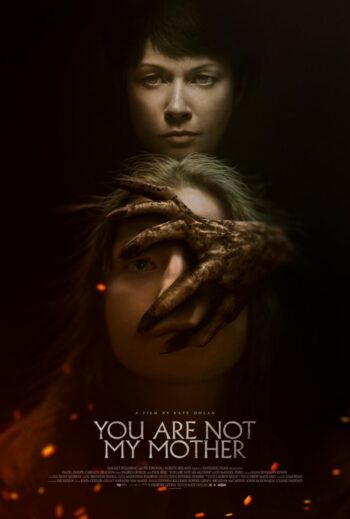
YOU ARE NOT MY MOTHER (2021)
Directed by Katie Dolan
Often Irish horror has a habit of grounding itself in centuries-old lore. Films like The Hallow, The Lodgers, Wake Wood and The Hole In The Ground all situate themselves against the backdrop of local legends and stories. While Kate Dolan’s accomplished debut, You Are Not My Mother, may immediately conjure up associations with Kat and Zoe Slater in EastEnders, it’s part of this tradition. It’s a modern take on tales about fairies (very different from the fairy tales you likely grew up on) and changelings, i.e., sprites that replace a stolen child or baby.
Char, short for Sharon, is a bright but troubled girl – the alienated geek who skipped a year at school but always eats alone at lunch. When she isn’t having creepy dreams about burning babies, she’s being bullied by the local mean girls (who also seem to crush on her). At least she has her family for support, right? Nope: her mum has very apparent mental health issues and crashes the car on the way to school, thinking she’s seen a horse on the road. To make matters worse, this is the last time Char sees her as later that day she’s vanished, leaving nothing but a shopping basket. Rita, Char’s grandma, is convinced she’ll come back – and sure enough, she does. But there’s something a little different about her. For a start, she’s happy now!
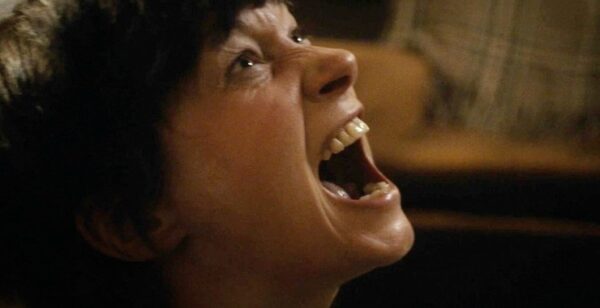
You Are Not My Mother wears its premise on its sleeve, and from the moment she returns Angela is evidently not the same woman we met at the beginning. Her change isn’t presented as a twist. Yet what’s interesting is it’s played as bittersweet: Char wrestles with this glaring truth because she wants to believe her mum has gotten better. It’s an emotionally complicated idea and one I’d like to see explored more. Unfortunately, at times the movie seems to do the bare minimum characterisation. Most notably, what should be the film’s central relationship seems underdeveloped, with little time to get to know the mother/daughter dynamic before the change takes place. It doesn’t help that Angela is a bit of a blank slate, despite a solid physical performance from Carolyn Bracken. There’s a brave premise in exploring when a person’s mental health issues can interfere with them being able to provide care for their own kid. Yet with the specifics of her condition being so vague, beyond a vacant look and a single muttered phrase. For that matter, it’d be good to learn more about Angela growing up with Rita – rather than the latter feeling like she’s there as a source of exposition.
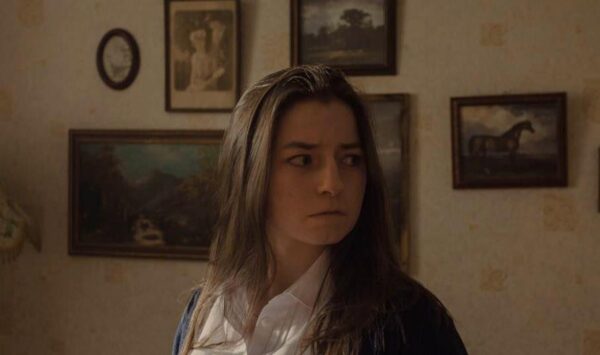
Hence while it has momentum, no mean feat considering the threat is held at bay for almost the entire thing, it lacks dramatic stakes. That being said, I unexpectedly found myself more invested in Char’s evolving friendship with Suzanne – one of the bullies at first, who becomes nicer as the story goes on. Both come from broken homes and have responded to their circumstances differently. And though Suzanne doesn’t know what’s happening with Char, their scenes are among the movie’s most emotionally engaging. Hazel Doupe also does an excellent job of portraying a young person carrying the world’s weight on little shoulders. And while her passiveness means the film briefly lulls into repetition during the second act, she captures Char’s journey well. And it’s a decent journey! In terms of the actual plot beats, if not the characterisation, it’s a rich and complex tale that does a remarkable job of selling its fantastical elements – much like a certain cult classic that it does a fun visual reference too.
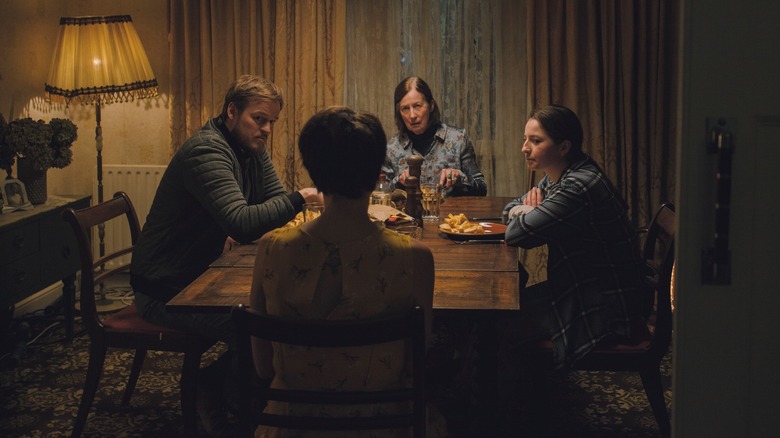
While it would have been welcome for it to commit more to being a folksy film, or embracing the generational trauma it’s clearly intended to symbolise, it establishes its premise and adds layer after layer to it. A neat development at the end of the second act ups the ante, leading to an intense finale. These sorts of films often peter out towards the end, though I think the pay-off here lives up to the build-up. For a debut, it’s confident storytelling. It also looks impressive too. Dolan skilfully juxtaposes the wide-open spaces outside family house with its small cluttered corridors – only adding to the claustrophobia and the feeling of not being safe at home. Her framing is exemplary: characters seen askew or through doorframes hint at something below the surface we’re looking at but not quite seeing.
Rating: 






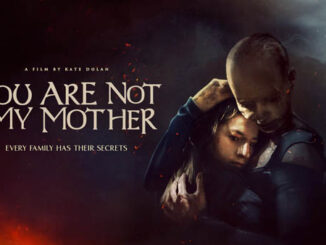
Be the first to comment